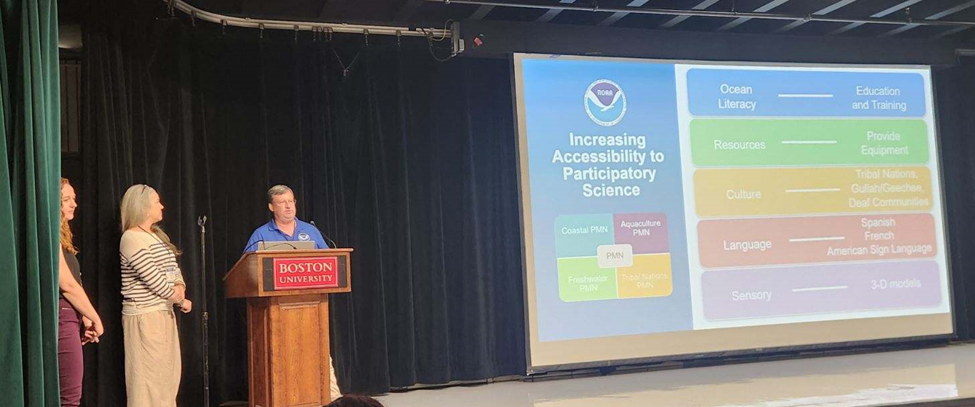
The NCCOS Phytoplankton Monitoring Network (PMN) Program provides training for a nation-wide network of community-based volunteers who monitor their local waters for marine phytoplankton and harmful algal blooms. The team strives to provide inclusive and accessible training materials and are already providing training materials in Spanish with a plan to expand to additional languages. Their most recent commitment is providing training materials for volunteer scientists within the deaf and hard of hearing community.
Communicating science to the deaf and hard of hearing community presents many barriers, as scientific terms often do not directly translate from English to American Sign Language (ASL), or vice versa. Many concepts are difficult to explain on a word for word basis in order for the translation to ASL to be understandable and carry meaning. Scientific terms that don’t have direct translations require fingerspelling, which presents additional difficulties and inefficiencies. Due to the scientific nature of the PMN training, the lack of scientific terms within ASL presents the PMN team with challenges on their quest to provide training to the deaf and hard of hearing community.
To help overcome some of these language barriers, the PMN Program team is now collaborating with Atomic Hands, a non-profit organization whose mission is to expand ASL throughout the field of science, technology, engineering, and mathematics (STEM) by fostering wonder and curiosity, empowering the community, and encouraging collaboration. Through this partnership, Atomic Hands will be creating new ASL signs specific to phytoplankton and monitoring, and will be using these new signs as the team creates new PMN training videos completely in ASL. This will further the accessibility and inclusivity of PMN to the deaf and hard of hearing community. In addition, these new terms will feed a much larger need in the effort to expand ASL STEM terminology.
Learn more about Atomic Hands and the Phytoplankton Monitoring Network.
View additional NCCOS equitable science projects, news, and helpful resources.
